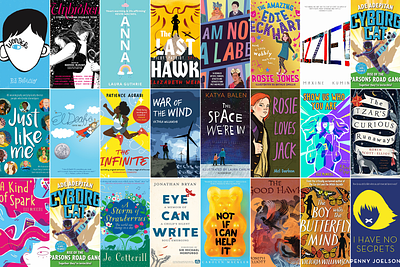Looking for all Articles by Victoria Williamson ?
Why representation of neurodiverse and disabled characters is important on your bookshelves

Read a thousand lives through reading
My favourite quote about books is the one by 'Game of Thrones' author, George R.R. Martin, who wrote:
'A reader lives a thousand lives before he dies. The man who never reads lives only one.'
What he meant by this, is that if you don't read books, you only get to see the world through your own eyes, and only ever get to experience things that happen to you directly.
When you read a book, on the other hand, you have the opportunity to 'get inside' someone else's head – to hear the thoughts they're thinking, to feel what they're feeling and to experience all the life events that they encounter, if we only read books about people who are like ourselves, there are far less opportunities to explore the full range of human experience, and to learn from other people's lives, even if those lives are fictional. To get the most out of our reading experiences, we should try to read about a whole range of people who have different abilities, backgrounds and cultures.
Here are a few things that can help you to broaden your reading horizons.
Challenge 1: Analyse the books in your school library or class bookshelf
Take a look at the books you have available in your school library or classroom. Are they about people like you, or do they reflect different people's experiences? Are they mostly about boys, or mostly about girls? Are there any about people who have disabilities? Are there any that are set in a different country?
You could try drawing up a table to record the different types of books you have available. First discuss as a class what you’ll be focusing on and what you’ll record. For example, you could record:
- What the gender of the main character is
- How many books have a main character with a disability and what that disability is
- How many different ethnicities are represented in the books?
- How many books are set in other countries
These are just a few ideas to get you started – there are lots more categories you could choose.
Once you've analysed all of your books, discuss the results together. Are there more main characters of one type? Are there any characters, experiences, disabilities or cultural backgrounds that aren’t represented?
Challenge 2: Diversify your reading
If you find the books in your class or library reflect only a narrow range of people and experiences, and you'd like to read about different characters with different experiences, Scottish Book Trust has lots of online book lists you can check out to help you pick some more diverse books, including books that feature neurodiversity or disability for 9-11 year olds or 12-14 year olds.
Have fun on your reading adventures – if you keep reading a wide range of books then maybe you'll get the chance to live those thousand lives!
For more help diversifying your bookshelves, check out our library audit learning resource.